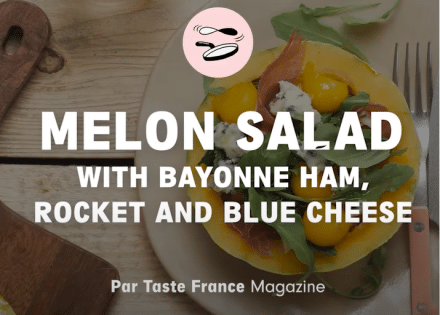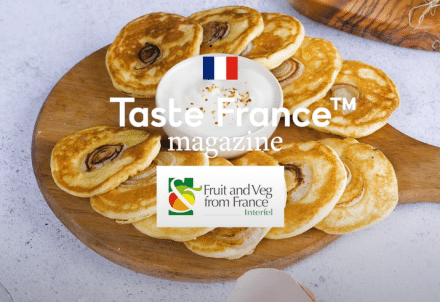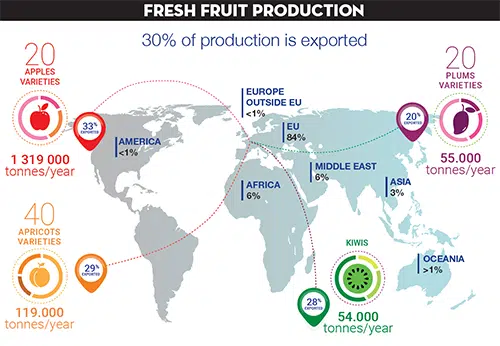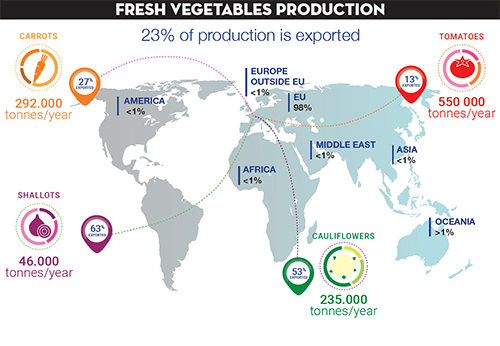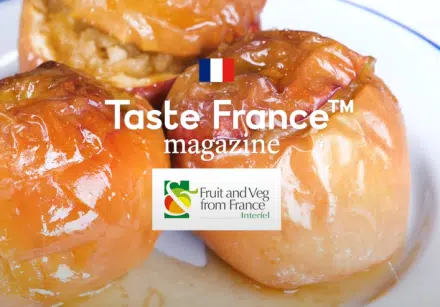
International markets
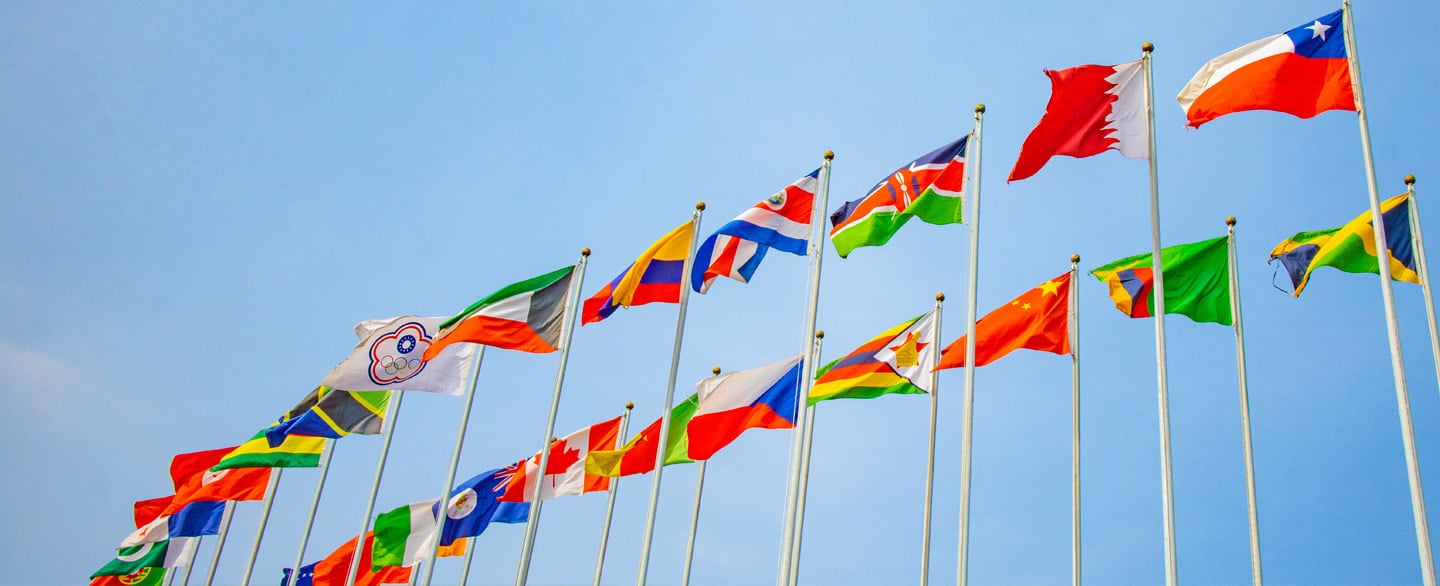
Global status of the fresh fruit and vegetables sector
In addition to the knowledge and protection of the French fresh fruit and vegetables market, Interfel also works to develop international markets. The export strategy consists of :
- Developing the promotion and the prospection of French companies in world markets (European promotion programs, participation in international trade shows).
- Improving export support tools for French companies
- Requiring reciprocity agreements in trade relations
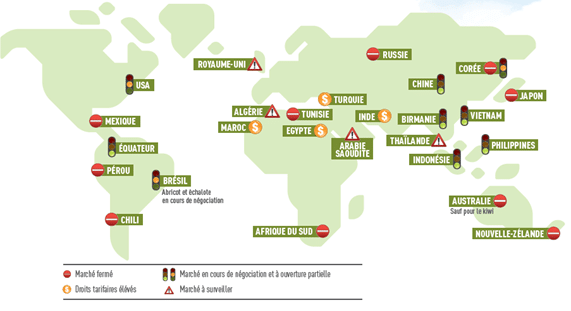

International Commission
The International Commission is a forum gathering the national professional organisations of Interfel, as well as key French exporters operating in the fresh fruit and vegetables sector.
Its mission is to promote development initiatives for fresh fruit and vegetables markets, both domestically and worldwide. It also monitors and actively participates in international trade with France, for example it includes:
- Lobbying with public authorities regarding international negotiations.
- Promoting French operators at international trade fairs.
- Valuing products via promotional programs in various markets targeted in the EU and in third countries.
- Analysing and monitoring exchanges and resulting
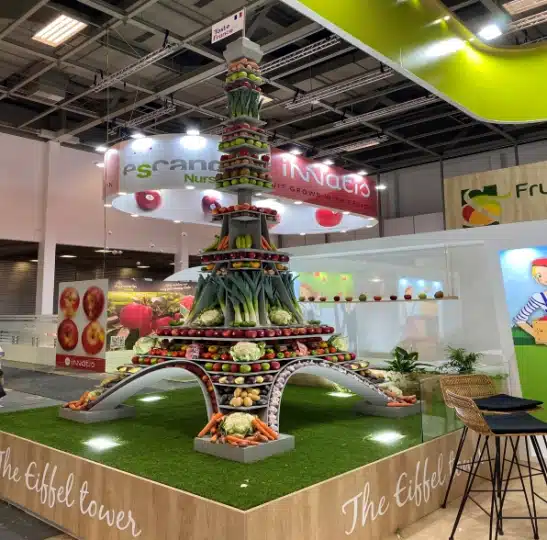
Promotional actions: international trade fairs
To promote French products towards various players within the global market, Interfel regularly participates in several international trade fairs, both in France and abroad:
- Fruit Logistica in Berlin (Germany)
- Fruit Attraction in Madrid (Spain)
- AsiaFruit Logistica in Hong Kong (China)
- CIIE, Shanghai (China)
- Gulfood, Dubai (United Arab Emirates)
- PMA (United States)
Awareness-raising actions
In Europe
Following FranceAgriMer (state agency) decision to cease co-financing in 2016, the International Commission was compelled to focus its promotion to support markets for apples, kiwifruit, and apricots in four countries: Germany, Spain, Belgium and Ireland.
In 2020, digital communication took a significant part in the promotion of seasonal fruit and vegetables which centred on producing appealing, fun, and savoury content. This was done by creating and releasing recipe videos to promote products in markets like Germany, the United Kingdom and Spain.
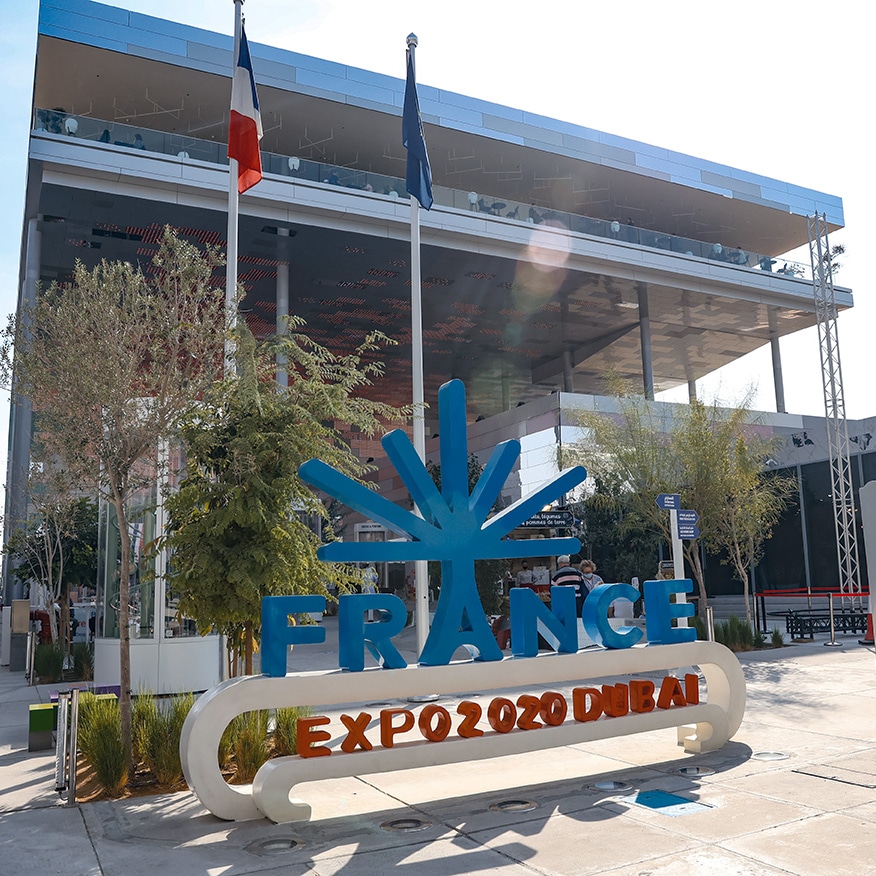
In Third Countries
Outside the Old Continent, it is the European lifestyle that has the mission of attracting operators and foreign consumers.
Promotional and communication programmes co-financed by the European Commission have been set up in recent years, particularly in the four geographical areas of Asia, the Middle East, North and South America. Their aim is to communicate on the French Art de Vivre in its gastronomy, in pleasure, in « well eating », in taste, while taking into account healthy and sustainable consumption.
From tastings at the point of sale in the Gulf countries, to professional webinars in Vietnam, to apple bikes in Colombia, numerous actions have made it possible to communicate and raise awareness of French products.
International negotiations
Some figures on the export of fresh fruit and vegetables*.
With a total production of 7.8 million tons of fruit and vegetables in 2020 (excluding potatoes), France is the 4th-largest European producer in the sector.
Of these 7.8 million tons, 2.26 million – about 29% of the overall production – is exported.
84% of fresh fruit is exported within the EU and 16% outside the EU, with apples leading among all the French fruit marketed worldwide.
98% of fresh vegetables are exported to the EU and 2% outside the EU.
* Sources: Agreste; French customs authorities.
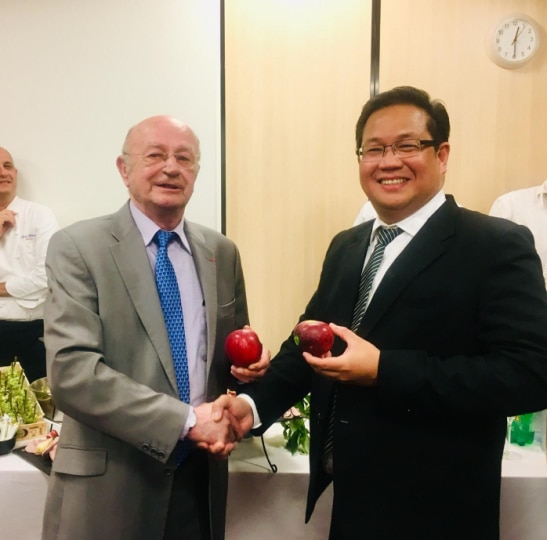
Trade negotiations
Because international trade depends on optimal relations with foreign countries, Interfel’s International Relations department, supported by the International Commission, strives daily to maintain already established partnerships and negotiate the opening of new markets.
Key events in 2018
- Opening of a new market for apples in Ecuador
- Approval to export a new variety of kiwifruit, namely the baby kiwi, to Vietnam
Key events in 2019
- Opening of a new market for apples in the Philippines
- Implementation of a bilateral agreement concluded with China for the export of shallots
Then in 2020: Establishment of negotiations, in particular to export apples to Mexico or to export plums to Vietnam.
International report
In 2020, French exports of fruit and vegetables remained constant, the minor decline that emerged was due to a slightly low cultivation of some varieties like apple and summer fruit. It is particularly interesting to analyse the level of exports outside the EU, with a decline in the Middle East (-32%) and Asia (-34%) compared to the European Union (+1%).
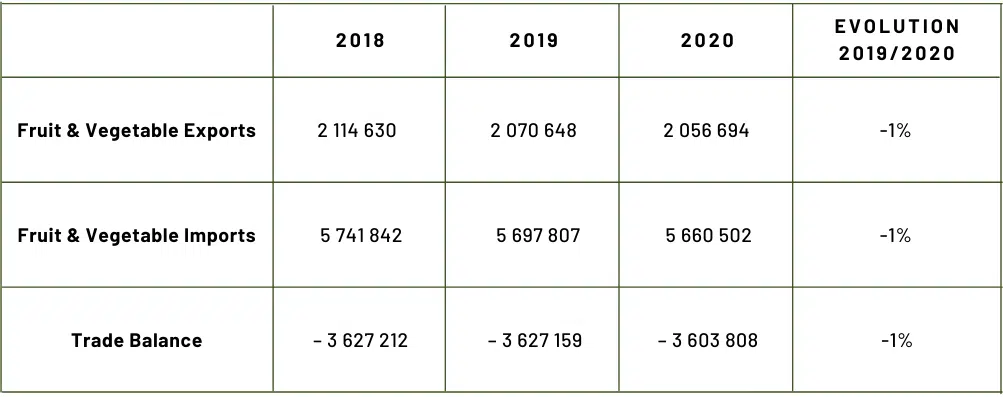
Source: French customs authorities
Brexit
The United Kingdom officially left the European Union on the 1st of February 2020 after the ratification of a long-negotiated withdrawal agreement, which set out the terms of an ordered exit and establishes a transition period.
The agreement signed between the European Union and the United Kingdom on the 24th of December 2020 has added numerous administrative hurdles on operators since the 1st of January 2021, with certificates of conformity having to be presented for every export to the UK.
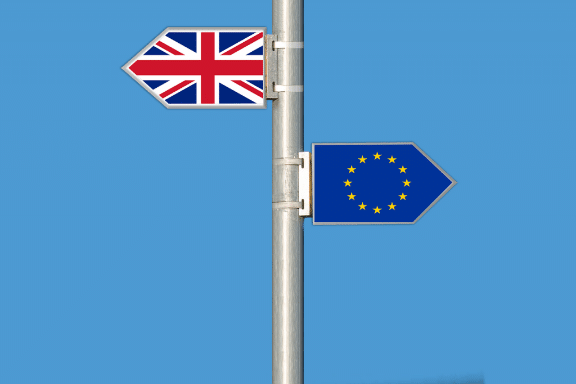
Russia : an embargo to be maintained
On the 6th of August 2014, following the EU economic sanctions imposed against it, Russia retaliated by settling an embargo on all agricultural and agri-food products (except wines and spirits) coming from the European Union, the United States, Australia, and Norway. This embargo, initially set for one year, was extended and prolonged several times by the Russian authorities.
In June 2016, the President of AFRAA (France-Russia Agrifood Association), Eric Guasch, accompanied the Secretary of State for Foreign Trade, Matthias Fekl, to Russia to improve relations with France. Several specific meetings ensued with representatives of the French Embassy and the European Union during the WorldFood trade fair in Moscow.
As of 2021, the Russian embargo remains and was extended until December 2022.
